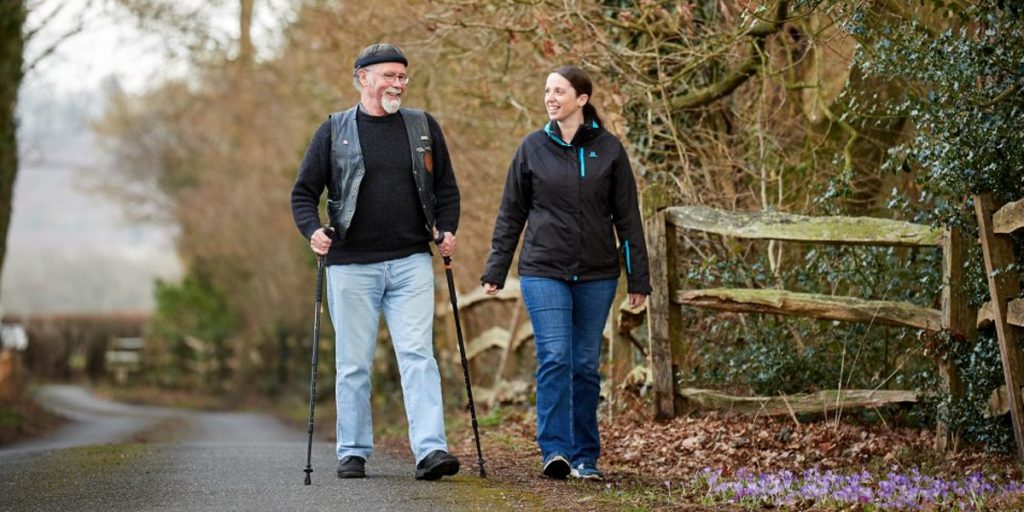At 11pm on an otherwise-ordinary Friday evening in August 2009, Jo-Anne Stovell received a phone call that would change her and her sister’s lives. From the other end of the line, the voice of a police liaison officer calmly explained how earlier that afternoon, down a Gloucestershire country lane, her parents had been involved in a catastrophic traffic accident.
While driving with fellow motorcyclists on their way to a rally, recently-retired firefighter Bob Stovell and his wife, Mo, had no time to react when a postman pulled across the road right in front of their bike.
The postman would later plead guilty to careless driving, as his ‘momentary lapse of attention’ resulted in Bob fighting for his life in hospital and Mo dying from her injuries.
“As a firefighter’s daughter, I think I’ve learned to shut off my emotions when I need to,” says Jo-Anne. “It sounds strange, but I had to tell myself, she’s dead, there’s nothing you can do for her, but dad needs you.”
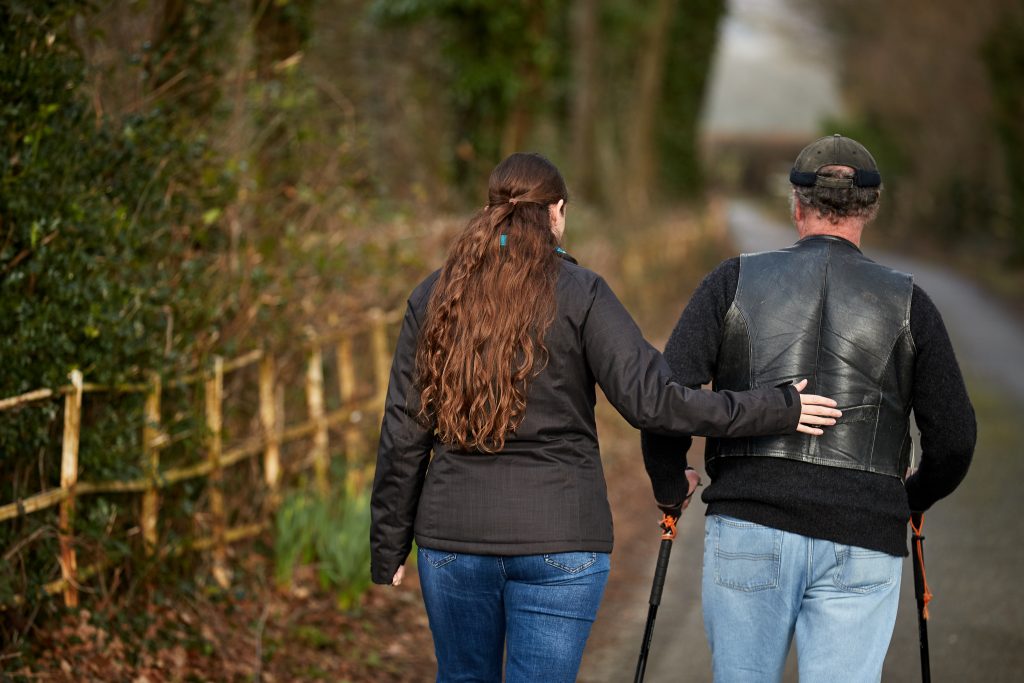
Three weeks into a new NHS job, then-26-year-old Jo-Anne says going into what she calls ‘official mode’ was the only way to cope when faced with the site of her dad lying in a coma in the Intensive Trauma Unit: “I can’t tell you how many machines he had wired into him,” she says. “But you just do what you have to do. I take after my dad in that way.”
While Bob lay in a coma, Jo-Anne helped to make funeral arrangements for her mum, spoke to her parents’ life insurers, supported her sister and dealt with the ongoing police enquiry. Then, in October, just before the funeral, Bob woke up.
“He came around in time to choose the song to be played,” says Jo-Anne. “I adore my dad, and now that he was awake, I wanted to come back and see him as soon as the service was finished. I didn’t feel like sticking around to celebrate my mum dying, but he insisted I take the whole day for her.”
On days they couldn’t get to the hospital, Jo-Anne and her sister would ring for news. It was during one phone call they learned Bob had had a cardiac arrest, and was once more in a coma in intensive care.
“My doctors told me later that I had died and been resuscitated five times,” says Bob. “They say I am a one-off and treat me as an experiment, because in the military hospital I was in, where lads were flown in from Iraq and Afghanistan, they’d never known anyone survive injuries like mine before. I’m on life number six now. I know how hard it was for my daughters to go through that.”
When he came round a few weeks later, he had no memory of either the accident or the death of his wife. And on top of this, he had no idea who Jo-Anne was.
“That was the hardest part of the whole thing, even more than when I had to ID my mum’s body,” she says. “He didn’t recognise me and couldn’t remember anything new, so I had to keep explaining. He would cry and swear at me, insisting I wasn’t his daughter. It was excruciating.”
Throughout the winter, Jo got into the routine of travelling between her hotel and his hospital bed, constantly having to explain what had happened, only for him to forget and ask to see his wife, then get upset all over again.
“On some level, I think he knew I was special to him, because he would let me feed him when he wouldn’t let the nurses, but it was so hard that he didn’t believe I was his daughter,” she says. “Then one day, just before Christmas, I walked into the ward prepared for the usual onslaught, and he sat up in bed and said ‘hello Jo.’ It was amazing.”

Once more, Jo-Anne explained about the accident, her mum, the funeral, and the extent of Bob’s injuries. Except this time, he understood.
“When your brain experiences trauma, it shuts itself down to forget the incident, but I’d also lost a lot of memory through physical damage to my brain, which will never come back,” says Bob. “It took me a year and a half to be able to remember anything from before the crash. Even now there are things I can’t remember, but certain songs, photos, even smells, they bring things back.”
What followed next was a painstakingly slow recovery period. Bob – who had been given only a 40% chance of surviving his initial injuries – was now told he would never walk again. Except, being a ‘typical stubborn firefighter’, Jo-Anne says he refused to accept this.
“He tried to discharge himself, but one night spent having to crawl up the stairs of his old house saw him return to hospital the next day,” she says. “He was frustrated at how slow the process was, and even more frustrated by how much he had to rely on me.”
Bob spent a year in hospital, undergoing treatment and physiotherapy for his injuries, and eventually was allowed to go home in a wheelchair. But that’s where his mental health took a turn for the worse.
“He would cry his eyes out and say he didn’t want to live,” says Jo-Anne. “I can’t imagine how hard it must have been, to have spent his whole life as a fit firefighter where it was his job to look after people, then to suddenly be so reliant on your daughters to look after you.”
It was at this point The Fire Fighters Charity became once more involved in Bob’s story. As he had visited Jubilee House earlier in his career for recovery from an injury, the family knew he would be happier among his own kind

“My dad never opened up about things he’d experienced as a firefighter, but being surrounded by peers at Jubilee House meant he was with people who all had the same mentality,” says Jo-Anne. “Hospitals can only do so much, but The Fire Fighters Charity put a spark back into him that had been all but extinguished.”
For Bob, who has always prided himself on his stubborn ability to get on with things, the staff at Jubilee House gave him the push he’d so desperately been needing: “They weren’t afraid to let me try and see what I could do,” he says. “I remember once, being in the gym, a physio took me by the arm and walked me across the middle of the floor. I got halfway across before I realised I had no walls near me, and that until then, without realising, I’d never walked away from a wall in case I fell and needed something to grab hold of. Things like that, they pushed you constantly to see if you can do it, and always offered an alternative way of thinking. Instead of saying ‘no, you can’t, they’d say ‘can you?’. They were the ground roots to start me getting better, pushing me enough so that when I came home I could push myself.”
Jo-Anne believes just being at the centre helped her dad: “Home had all these associations that got in the way of healing; the door where he came home for the first time from hospital, the bed he suddenly slept in alone, the stairs he couldn’t climb. Being at Jubilee House helped him focus on the future, rather than the past.”
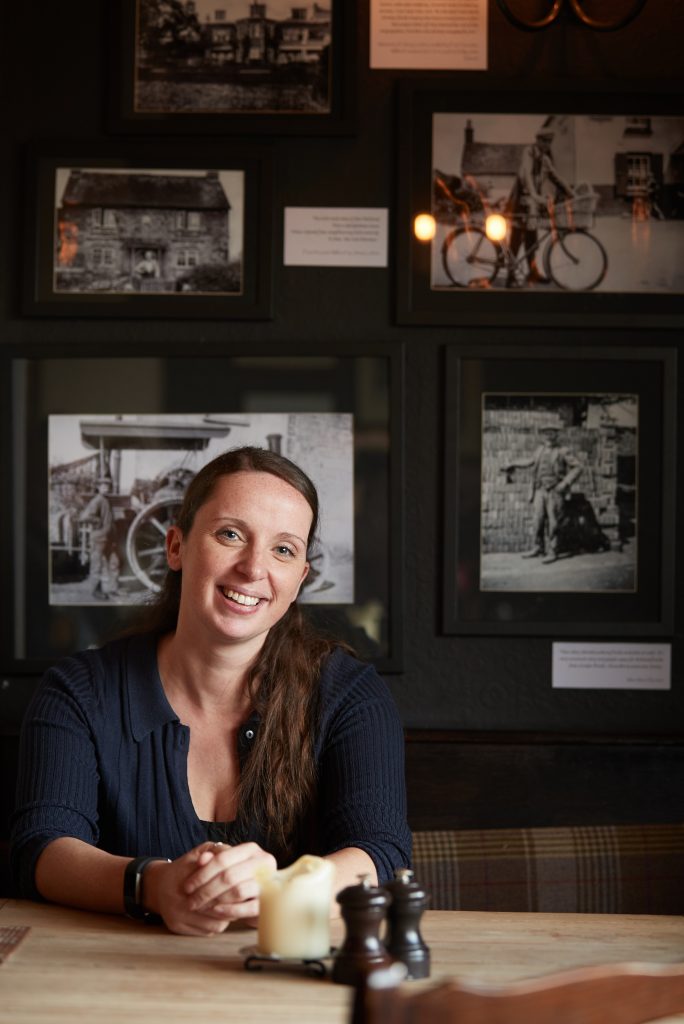
Between his visits to Jubilee House and time spent practising when he got home, Bob managed to progress from a wheelchair to a Zimmer frame, and then to a pair of walking sticks. He was introduced to a local company in Penrith who specialise in metal sticks used for Nordic walking across rough ground, which help Bob with his stability. Now, nearly nine years since the accident, he just uses sticks to walk while out and about, and manages without anything when he’s at home.
“Stubbornness is a family trait; no-one tells us what we can or can’t do,” he says. “My wife was a one-off, no-one told her what to do, and I am the same. And both of my daughters refused to give up, despite having their own issues to go through.”
Bob now regularly works out at his local gym to maintain his progress, and despite noticing setbacks more than he used to after longer time between his visits, he doesn’t let that stop him. “I can’t hold my stamina or strength like I used to, but I do what I need to do to keep alive,” he says. “I’m not really going to get any better now, it’s more a case of maintaining the fitness I do have.”
“The charity saved my dad’s life, there are no two ways about it,” says Jo-Anne. “He wanted to give up, but they didn’t let him. I’ve known firefighters my whole life, they’re a tough bunch. But too often, people think all they have to deal with is physical injury, and that’s just not the case. Being in Jubilee House, hearing what other people have experienced and sharing your story is just as healing as the programmes themselves.”
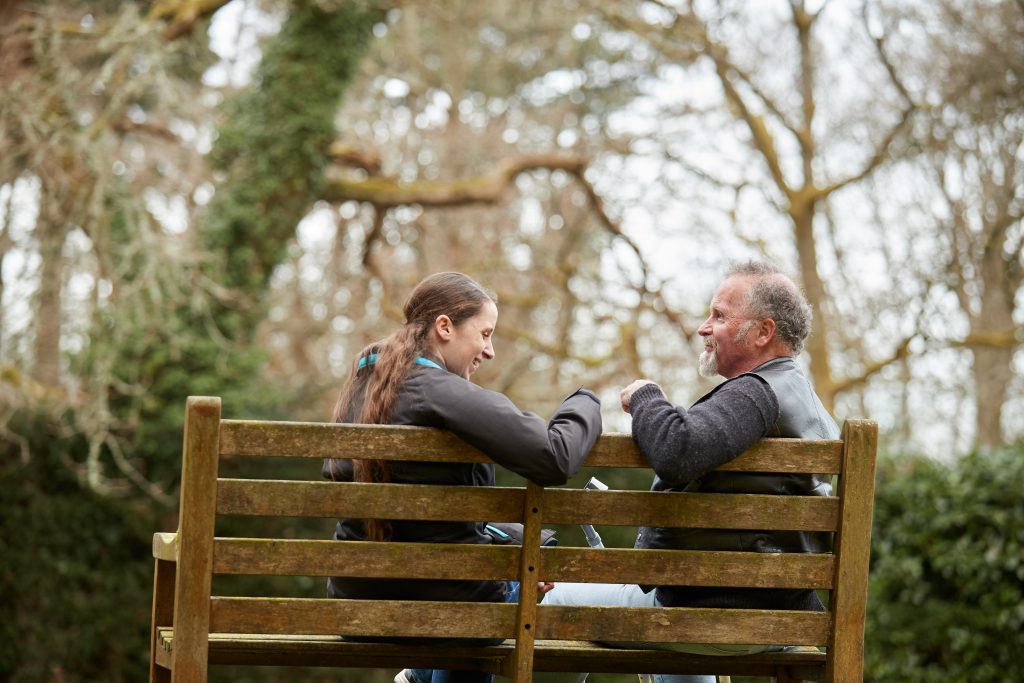
By way of saying thank you to the people who changed the course of her family’s story, Jo-Anne has pledged to leave 50% of her estate to The Fire Fighters Charity in her will, with one condition: it has to go towards Jubilee House.
“I don’t mind what it’s spent on, I just want it to be spent there,” she says. “I know for a fact my dad wouldn’t be where he is now without those people. I hope my money goes some way towards helping others who have shut down to start opening up again. I hope it helps people put their mind at rest, to find peace and gain a little perspective.”
Learn more about leaving a gift in your will
Bob also donated money to Jubilee House, asking how much it would take to renovate a bedroom into a specialist care room, and then giving them that amount of money. “From what they’ve spent on me for the amount of times I’ve been up there since the crash, I wanted to give something back,” he says. “As a firefighter I spent time there to help with injury, my wife and I would visit Marine Court for short breaks in the early days of our relationship, and my family benefited from the charity after the accident. The charity does wonders; it’s surprising how many firefighters don’t know about it, or that they’re eligible. The way they can get people back to fitness, both physically and mentally, is such a good thing. I just wanted to do something for the benefit of others, so they can be helped like I was.”
When asked what she would say to anyone who was unsure about approaching the charity for help, Jo-Anne is very clear: “I would say speak up, no excuse. Surround yourself with people who understand you and let them in. Firefighters don’t give themselves enough credit, they just see it as work; especially the older generation, who had more of an attitude of ‘just getting on with it’ and are so adamant they don’t need help. But we all need to stop every once in a while. The Fire Fighters Charity saves lives just like firefighters do, so why wouldn’t you go there to help you deal with things?”
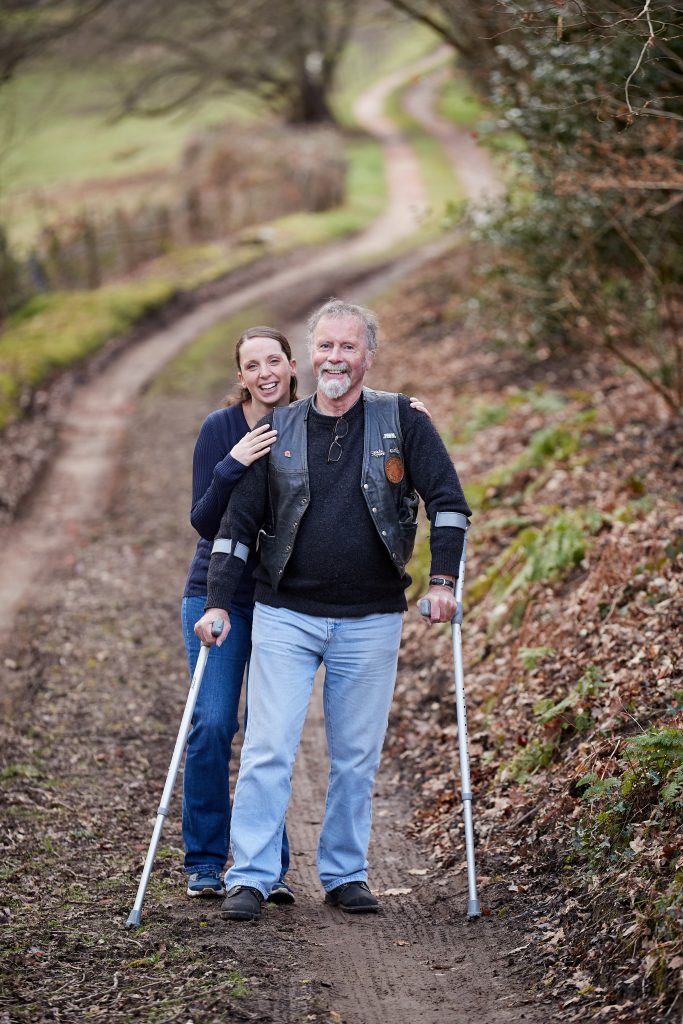
For someone who doesn’t like to wonder ‘what if?’, Jo-Anne says she knows what her mum would say if she could see the progress Bob had made: “She’d be as proud of him as I am,” she says. “And she would be really pleased to know I was leaving my money to the charity. I would never have done it to the extent I have if it wasn’t for what you’ve done for my dad, and she would be very proud of that. It’s a nice feeling, knowing someday, my money will help someone in the same way he was helped. As long as there are firefighters – which I hope is forever – there will always be people who need The Fire Fighters Charity. I’m just glad to be able to do my bit.”

